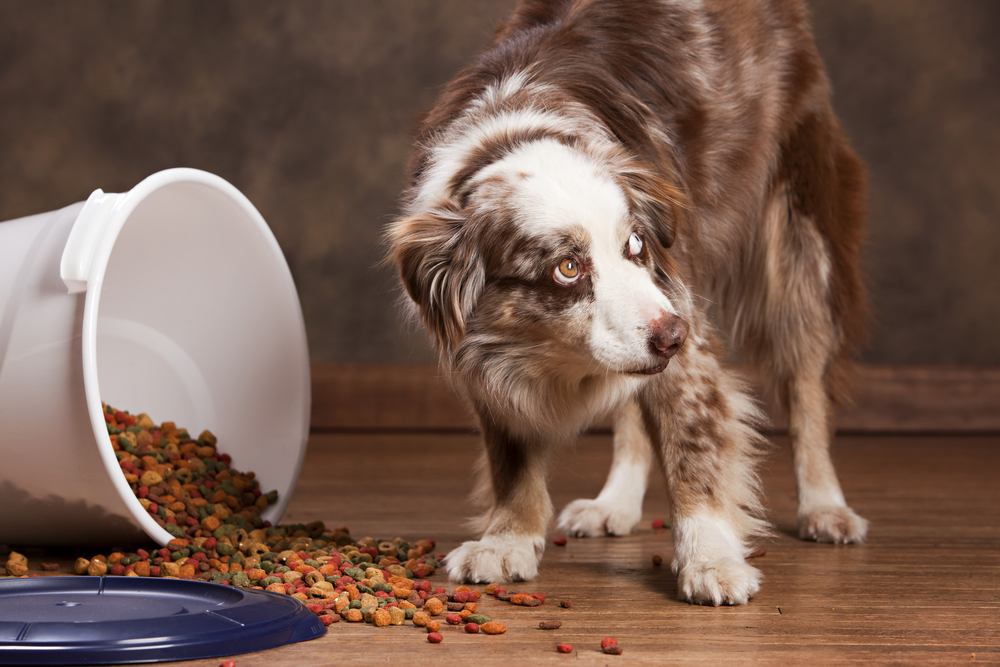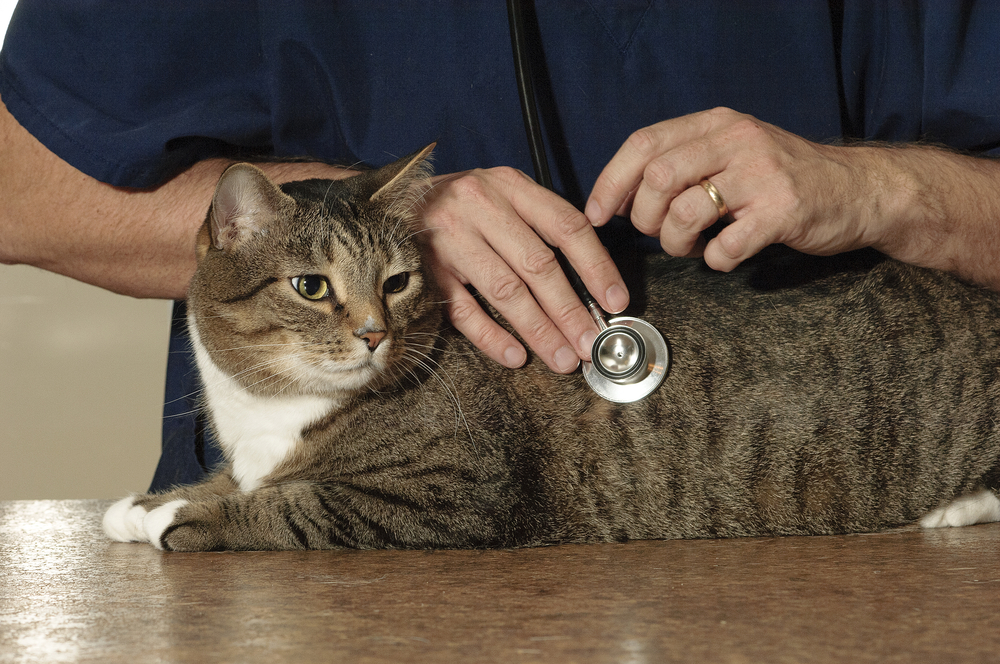During the holidays, pancreatitis cases among pets increase because owners want to share the celebratory feasts with them. The high-fat foods that are a typical part of holiday meals can cause serious health problems for your pet. The south Austin veterinarians at Oliver Animal Hospital want to explain how this dangerous condition can affect your pet.
The pancreas’ normal function in pets
The pancreas is a small glandular organ located under the stomach and along the duodenum (i.e., the upper part of the small intestine). This organ has two parts that have different functions.
- Endocrine part — The endocrine pancreas secretes various hormones, including insulin and glucagon. These hormones are responsible for regulating blood sugar levels.
- Exocrine part — The exocrine pancreas secretes enzymes, which travel to the small intestine to help digest nutrients. Normally, these enzymes are stored safely as inactive forms inside pancreatic granules until they reach the intestine.
Pancreatitis damage in pets
When the digestive enzymes from the exocrine pancreas are activated prematurely, they cause inflammation and damage to the pancreas and the surrounding tissue. Toxins released from the tissue destruction can cause an extreme inflammatory response throughout a pet’s body. Potential consequences include:
- Diabetes mellitus — If the endocrine pancreas is damaged and cannot produce enough insulin, diabetes mellitus can develop.
- Weber-Christian syndrome — This condition causes fats throughout the body to be destroyed
- Disseminated intravascular coagulation (DIC) — DIC causes small blood clots to develop throughout the bloodstream, blocking small blood vessels. The increased clotting depletes the platelets and clotting factors needed to control bleeding, resulting in excessive bleeding.
- Pancreatic encephalopathy — Brain damage can occur if the fats protecting the central nervous system are damaged.
Pancreatitis causes in pets
Many pancreatic cases are idiopathic, meaning the cause is unknown, but several conditions can lead to pancreatitis.
- High-fat meal — Ingesting a high-fat meal causes the pancreas to release a large amount of enzymes to digest the fat, which can predispose your pet to pancreatitis.
- Reflux — The pancreatic enzymes are typically not activated until they interact with activated enzymes produced by small intestinal cells. If small intestinal fluid moves back up the pancreatic duct, the pancreatic enzymes are activated prematurely.
- Hormonal imbalances — Pets affected by diabetes mellitus and hypothyroidism are predisposed to pancreatitis because these conditions alter their ability to metabolize fats. Pets affected by hypercalcemia are also at higher risk for pancreatitis because elevated blood calcium levels activate stored digestive enzymes.
- Trauma — Trauma to the pancreas from a car accident or a fall can result in inflammation.
- Tumor — Pancreatic tumors can cause pancreatitis.
- Obesity — Overweight pets are at higher risk for pancreatitis.
- Breed — Miniature schnauzers, miniature poodles, and cocker spaniels are predisposed to pancreatitis.
Pancreatitis diagnosis in pets
Pets affected by pancreatitis exhibit signs including appetite loss, vomiting, diarrhea, abdominal pain, and fever. A thorough history will be taken if your pet is showing these signs. Diagnostics that are useful include:
- Blood work — In addition to regular screening blood work, tests are available to specifically test for pancreatitis.
- X-rays — X-rays cannot diagnose pancreatitis, but they can rule out other conditions, such as gastrointestinal obstruction, that cause similar signs.
- Ultrasound — Ultrasound is the best way to get an image of the pancreas. Pancreatic enlargement, fluid accumulation around the pancreas, and a pancreatic mass are suggestive of pancreatitis.
- Fine needle aspirate — Examining cells from a fine-needle aspirate of the pancreas can definitively diagnose pancreatitis.
Pancreatitis treatment in pets
Treatment for pancreatitis is supportive, and severely affected pets require aggressive therapy and hospitalization. Treatments include:
- Fluid therapy — Intravenous fluid therapy is used to correct dehydration to replenish blood volume, which improves blood flow to the pancreas.
- Pain management — Pets affected by pancreatitis have local and visceral pain that should be managed appropriately.
- Nutrition — Historically, resting the pancreas by withholding food was recommended for pets affected by pancreatitis. However, studies have shown that early nutritional support decreases intestinal inflammation, increases intestinal motility (i.e., intestinal contractions), and stimulates intestinal mucosal regeneration. If your pet is not eating, a feeding tube may be placed to provide nutritional support.
- Antiemetics — These medications are used to help manage a pet’s nausea and vomiting.
- Gastric acid suppression — These medications may prevent conditions such as gastric or intestinal ulceration or esophagitis.
- Antibiotics — Antibiotic treatment may be recommended if the pancreatic tissue damage results in a secondary infection, or if bacteria from the small intestine move elsewhere in a pet’s body.
- Surgery — Surgical intervention may be necessary if biliary obstruction occurs, your pet does not respond to aggressive medical management, the pancreas develops an abscess, or other organs are compromised.
Pancreatitis management in pets

Once your pet recovers from pancreatitis, they will need lifelong management to ensure they remain healthy. Management approaches include:
- Dietary modification — High-fat diets, abrupt changes in diet, and access to table scraps and garbage should be avoided. A low-fat or ultra low-fat prescription diet may be suggested for your pet. Typically, feeding your pet smaller, more frequent meals is recommended.
- Veterinary monitoring — Pets who recover from pancreatitis are at increased risk for a recurrence of the condition, as well as the development of other conditions, including diabetes mellitus and exocrine pancreatic insufficiency. They will need frequent veterinary attention to monitor for these issues.
Keep your pet away from the dinner table during this year’s holiday celebrations to help prevent a pancreatitis episode. If you are concerned your pet has developed pancreatitis, contact the south Austin veterinarians at Oliver Animal Hospital so we can begin treatment as soon as possible.







Leave A Comment